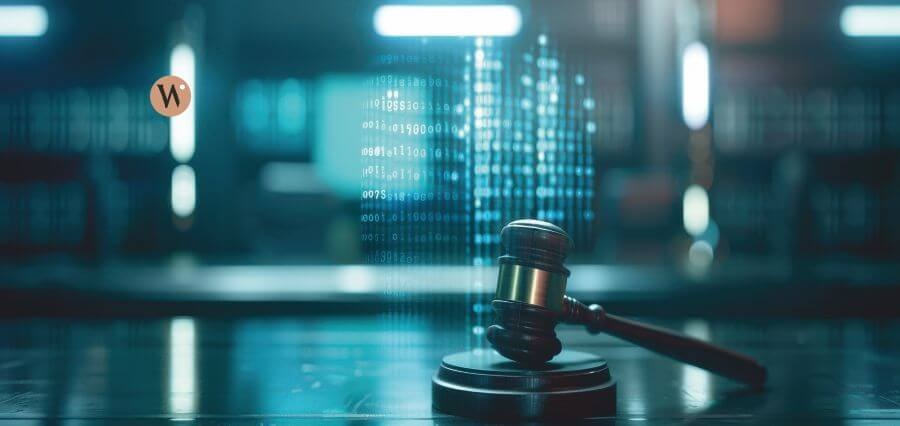In modern society, law and ethics cross their ways to determine how to operate a justice system. It is the set of rules formulated and applied by the governmental units in maintaining social order and being created by human conscience-the ethical aspect. The changing social mores and the law and ethics relationship continue to pose critical questions on fairness, justice, and individual rights. Most of the time, lawyers, legislators, and judges are left with a hard decision to make: either to side with the statutes of law or the ethical principles, which are mostly at odds with each other.
The Legal System’s Dependence on Ethical Principles
In fact, the essence of the legal system resides in the fundamental fact that the laws must reflect what is just, fair and equitable. Ethics plays its own significant role in the production of, application, interpretation, and laws, compared with laws being black and white. More often than not it is ethics which determines in practice how those laws are placed in life.
For instance, in legislation formation, lawmakers weigh competing interests in a proposed policy against the gains and losses of a given policy on different groups of people in society. The ethical principles guide choices as to which policies are in the common good and protect rights of individuals. In courts, judges and attorneys work towards having the rights of all parties observed, that legal processes are fair, and that justice is served.
Legal practice- This is the major aspect where law encounters ethics. Attorneys must operate with a code of ethics. It can be a body such as the American Bar Association Model Rules of Professional Conduct that illustrates how attorneys ought to practice in representing their clients, functioning as officers of the court and as actors within the system of the judicial. However, sometimes, the legal duties of lawyers conflict with their obligations to the court, society, and, finally, justice.
A great example would be the case in which a lawyer undoubtedly knows that his client committed a crime but still has a responsibility to represent his client to the best of his abilities. The lawyer has an ethical responsibility to represent his client zealously. Also, they have to consider their duty before the court and to the idea of justice. Therefore, a point of tension can easily be created, particularly where the case may well be a high-profile criminal one in which public opinion is most likely split.
In addition, ethical questions arise in civil law, specifically with regard to corporations and personal injury claims. Attorneys often encounter a scenario where they would have to choose whether they should carry on their client’s interest or if they must hold onto their moral judgment. For example, a lawyer is entrusted with the task of defending a corporation accused of environmental malpractice. Still, in a situation where the lawyer is of the opinion that the company’s activities were patently unethical, then the lawyer might have to wrestle between completing the professional obligation and following his or her personal ethical sensibilities.
Technological Issues and Ethics of Modern Law
Advances in recent times have transformed the practice of law for professionals by leaps and bounds. Digital tools, the internet, and AI afford a modern legal practitioner tremendous scrutiny on ethical concerns ranging from data privacy, cybersecurity, responsible use of technology, and much more.
Consider AI in the practice of law. AI tools can help with legal research, automate mundane jobs, and even make judgments on cases. Yet AI algorithms suffer from many concerns over issues of fairness and bias. Should an algorithm be biased, then the result of such may well be generated because it sustains the prejudices that are extant and, hence, unfair. The ethical question is: do we have the right to entrust technology to make decisions in matters that impact human lives, or do we stick to human oversight?
Data privacy and confidentiality also arise with the increasingly digital nature of today’s world. A professional duty exists to keep his client’s confidential information private for a lawyer. This has, however, been made more complex with the advent of cloud computing and the increased use of digital communication. Professionals in law must find a way of balancing the convenience and efficiency of new technologies against their ethical responsibility towards protecting the privacy of clients and data security.
Conclusion
Ethics is the bedrock of most modern legal systems, shaping the activities of legal professionals and jurisprudential understanding and application. The ethical dilemma that best describes the experience for attorneys, judges, and lawmakers is that which is the underlying issue: how can legal decisions and actions be squared with moral principles in the execution of protection for human dignity, fairness, and justice?
With the continued growth of interconnected society and technological advancement, these ethical dilemmas that face the legal profession will surely grow in intensity. This calls for the alertness and care of legal professionals to ensure their actions meet both the letter of the law and the moral ethos behind it. This way, the integrity of the legal system will be served, and contributions will be made towards a just and fairer society.





Your article helped me a lot, is there any more related content? Thanks!
Thanks , I’ve just been searching for info about this topic for ages and yours is the greatest I have discovered till now. But, what about the bottom line? Are you sure about the source?